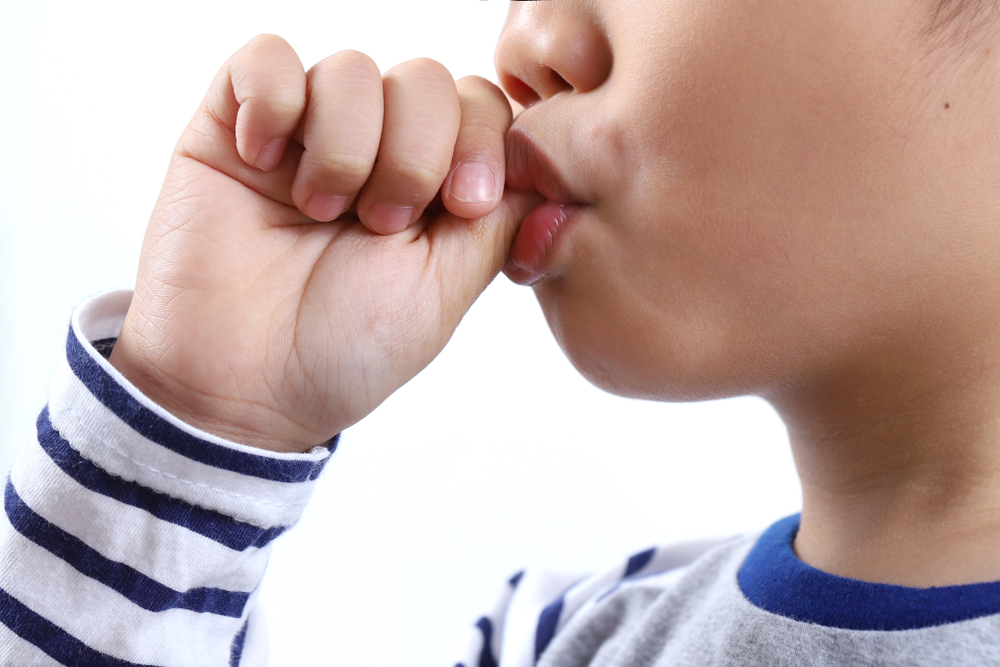Thumb sucking is a common habit seen among young children. Babies and toddlers may suck on their thumbs to help them fall asleep or self-soothe. It is essential to be aware that not all thumb sucking damages the mouth or teeth, but there can be consequences to thumb sucking if the habit persists past the toddler stage.
How Long Should Children Suck on Their Thumbs?
The American Dental Association states that children typically stop sucking on their thumbs between the ages of two and four, or by the time that permanent front teeth appear. Ultimately, each child is different, and we encourage you to contact your dental care provider if you notice changes in your child’s teeth or are concerned about their thumb-sucking habits.
What are the Consequences of Thumb Sucking?
If thumb sucking continues after permanent teeth come in, children may develop issues with the growth of their mouths, problems that affect their teeth alignment or experience changes to the roof of their mouths.
Thumb sucking may cause some of the following dental issues:
- Malocclusions, such as overbites — where the upper front teeth protrude from the jaw and mouth.
- Bite issues, such as open bites — where the upper teeth and lower teeth do not touch when the mouth is closed.
- Changes to the shape of the jaw — which can impact teeth alignment and affect speech patterns, such as lisp development.
- Changes to the roof of the mouth — which can cause enhanced sensitivity.
According to the ADA, the intensity of the thumb sucking also contributes to the possibility of future dental problems. Children who vigorously suck on their thumbs are more likely to damage their teeth than those who just rest their fingers in their mouths.
It is important to note that most of the above issues will not occur if children stop sucking on their thumbs by the time they lose their primary (baby) teeth, and their permanent teeth come in. These issues are typically only prevalent in children who suck on their thumbs for a long time or suck their thumbs aggressively.
How to Discourage Thumb Sucking
It is important to remember that thumb sucking will typically end on its own. Social situations and peer pressure are potent deterrents that lead children to understand that the behavior is no longer socially acceptable. However, if the behavior continues into kindergarten or beyond, here are a few tips to help your child stop sucking their thumb:
- Praise your child for not sucking their thumb.
- Since children often suck their thumbs to self soothe when they feel anxious, it is essential to address and correct the cause of anxiety that your child is facing in order to discourage the behavior.
- If your child is older, ask them to help in choosing the method of stopping. Breaking the habit works best if your child wants to stop sucking his thumb.
- Enlist the help of a dentist! Dentists offer encouragement to the child and help explain the consequences of what could happen to their teeth if they continue sucking their thumb. We are here to help you!
If these methods are unsuccessful, you can also try bandaging the thumb, using a thumb guard, or putting a glove or sock on your child’s hand at night to remind them of their habit. Dentists can also prescribe a medication that coats the thumb with a bitter taste or provide orthodontic devices that disrupt the child’s ability to suck his thumb.
Should You Replace the Thumb Sucking Habit With a Pacifier Habit?
No. Healthline states that pacifier usage creates the same possibilities for tooth damage as thumb sucking. Pacifiers also can attract germs if they fall on the ground. The only upside to pacifier usage over thumb sucking is that you can take pacifiers away from your child if you are trying to break their habit.
Visit Your Child’s Dentist | The Landing Dental Spa
At The Landing Dental Spa, we want to take care of the whole family. Preventive oral care starts as a child, and we believe that healthy oral habits that start early will continue throughout an individual’s life. During a pediatric appointment, we will provide a comprehensive report, including:
- Oral exams
- Cleanings
- Assessments for straightening teeth or correcting bites
- Cavity repairs
- Repairing dental injuries (broken teeth)
If you have any questions about your child’s thumb-sucking habits or are concerned about any changes in your child’s teeth, please contact us at 304-594-2200.
Web Links:
https://www.healthline.com/health/parenting/thumb-sucking-teeth#effects-on-mouth
https://www.ada.org/~/media/ADA/Publications/Files/patient_77.pdf?la=en


Recent Comments